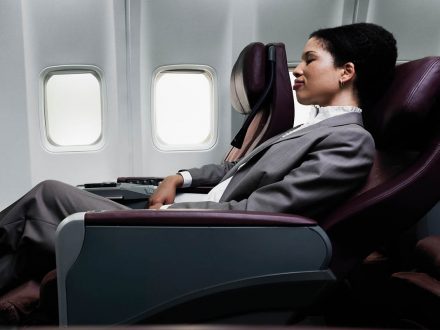‘Bleisure’: How to successfully mix business travel with pleasure

Travelling for work can be stressful and hectic, especially if people have back-to-back meetings or a long trip. And the constant need to be connected means team members rarely have enough downtime to fully recharge their batteries. However, it can be possible to make obligatory business trips more fun with the right approach.
Businesses that facilitate this can potentially improve staff loyalty and retention. The rise in executives travelling for both business and leisure has created a new business travel term: ‘bleisure’.
There are two key approaches to bleisure. The first is to schedule extra vacation days around the work trip. Taking an extra few days at the end of the trip to relax and unwind can make the entire experience more pleasurable for workers, and can help them return to the office refreshed and ready to be productive. The second way is to find time on the business trip to squeeze in some fun activities so it doesn’t feel like the entire trip is a grind.
Part of what makes business travel stressful is the constant need to be productive, rushing from meeting to meeting without much personal time. Compounding this stress is that business travellers are away from family and friends, with no-one to debrief with at the end of a busy day. However, in many cases it might be possible to bring family either for the duration of the trip or for a few days at the beginning or end. Business travellers can even tack on a family vacation if the timing is right.
However, it’s important for travellers to ensure their family won’t interrupt their work obligations and the company is aware that family members will be accompanying them, as well as to comply with any relevant company policies.
Another way to combine business and pleasure is to schedule or attend conferences and conventions at desirable destinations. For example, attending a convention at a beachside resort can make it easier for employees to decompress by taking advantage of the activities offered. If travellers have no control over the destination, it’s still likely that the hotel or resort offers some activities and services that can add a little fun to the trip.
Workers staying in basic business accommodation should find time to get out of the room and explore the city they’re in. Whether they’re in Paris or a small country town, there’s almost always something to see. It can be worth asking for recommendations at the hotel reception.
For some, flying to a different town can offer a chance to catch up with far-flung friends and family. If the person isn’t staying in the same town as their friends or family members, they may be able to be booked on a flight that connects them close to someone they know. Again, it’s important to clear this with the company and make sure the employee isn’t violating any company policies.
If all else fails, the hotel gym or pool can provide an hour’s respite from the constant demands of work. Exercise releases endorphins so even a 20-minute workout can help relieve stress, improve health, and let someone get a new perspective on the trip.
Working out can also help overcome the health risks of business travel, which range from jet lag to an increased risk of a stroke or heart attack. Many travellers find it difficult to maintain a healthy regimen while on the road, often leading to poor diet, lack of exercise, and excess drinking. People’s mental health can also suffer if they face unrelenting pressure without their normal support network of friends and family around them.
Therefore, facilitating bleisure travel is important for business leaders. It’s also important to ensure expenses are captured accurately, since there could be fringe benefit tax ramifications. Keeping a travel diary can be an easy way to avert this, especially if the diary is automated and cloud based.